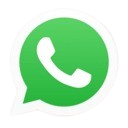The bizarre connection between 17th-century Swiss mercenaries and marketing
Today, Nostalgia is firmly embedded in the fabric of modern marketing. But, in its early meaning and use, nostalgia was seen as a painful and debilitating psychological condition.
ADVERTISEMENT
The past often feels more comforting than the present in today's fragmented and complex world. As a result more marketers have returned to the retro in recent years. From CRED’s decision to enlist 90s film icons like Govinda and Madhuri Dixit to PepsiCo’s revival of its legendary ‘Yeh Dil Maange More’ campaign, brands are increasingly looking backward to move forward. The question arises: Why are these brands resurrecting relics from yesteryear?
This summer, the "Onida Devil" — the mischievous mascot from a 1990s TV campaign — made a striking return, this time gracing the brand's air-conditioner range. Meanwhile, Asian Paints brought back its iconic 'Har Ghar Kuch Kehta Hai' campaign, originally crafted by advertising giant Ogilvy, while PepsiCo’s Mountain Dew unveiled a refreshed version of its vintage mountain logo after nearly two decades.
Maybelline joined the nostalgia wave, resurrecting its famous jingle ‘Maybe It’s Maybelline’, this time with a modern twist featuring Suhana Khan. Even quick-commerce firm Zepto got in with a Nostalgia Box "full of goodies" from the 90s which one can purchase for Rs 599 a pop. Motorola recently rekindled the flame of nostalgia with a new version of its iconic Razr flip-phone.
The revival of these symbols, jingles, and faces is a conscious effort to tap into an enduring cultural resource: collective memory. But Nostalgia, a word now synonymous with longing for the past, has undergone a striking transformation in both meaning and use, from its origins as a medical diagnosis to its present-day status as a marketing tool.
Origins of 'nostalgia'
First coined in the 17th century, the term "nostalgia" derives from the Greek words nóstos (return) and álgos (pain or sorrow), literally translating to "the pain of returning home." It was initially used to describe the intense homesickness and emotional distress experienced by Swiss mercenaries stationed far from their homeland. Nostalgia was viewed not as a sentimental yearning but as a painful and debilitating psychological condition.
By the 19th century, the medical community recognized nostalgia as a mental disorder. Linked to the broader category of melancholy, it was thought to afflict individuals who found themselves uprooted from familiar surroundings. For centuries, the word conjured associations with sadness, loss, and the unattainable. Nostalgia was seen as a form of psychological suffering, a yearning for a past that could never be reclaimed.
However, over the course of the 20th century, this view of nostalgia began to shift. Psychological research started to acknowledge the complexity of the emotion, recognizing that nostalgia could be a bittersweet experience, one that combined elements of both warmth and pain. Rather than simply a reflection of homesickness, it came to be understood as a multifaceted longing for a time or place that carried personal significance. Far from being purely negative, nostalgia was increasingly seen as a source of comfort — a reminder of a shared past that could elicit feelings of continuity, identity, and even joy.
From psychological ailment to essential ad tool
It was during this reimagining of nostalgia in the latter half of the 20th century that the concept found fertile ground in the world of marketing. As Western consumer culture exploded, particularly after World War II, advertisers discovered that nostalgia could be a potent emotional tool. By evoking memories of happier, simpler times, brands could forge stronger connections with consumers, tapping into a collective longing for the past.
In the postwar era, as mass production and media saturated the market, advertisers began using nostalgia to sell everything from cars to canned goods. Commercials frequently invoked the idea of "the good old days" or showcased retro imagery, suggesting that the past held a certain purity and idealism that contemporary life lacked.
As the decades passed, the relationship between nostalgia and marketing deepened. The 1980s and 1990s saw a rise in digital media, alongside an explosion of global branding, both of which further entrenched nostalgia as a key strategy in consumer engagement.
Retro branding, jingles, and throwback imagery help brands transcend the limitations of time, allowing companies to craft a narrative that tied their brand to a larger cultural legacy.
Today, nostalgia is firmly embedded in the fabric of modern marketing. Companies routinely use nostalgic elements in product design, advertising, and even packaging to evoke a sense of familiarity and trust. The appeal of these nostalgic campaigns is not just in their aesthetic; they tap into deeper emotional connections, resonating with consumers’ sense of generational identity and communal memory.
What was once a psychological ailment has been rebranded as an essential tool in the marketer's arsenal.


